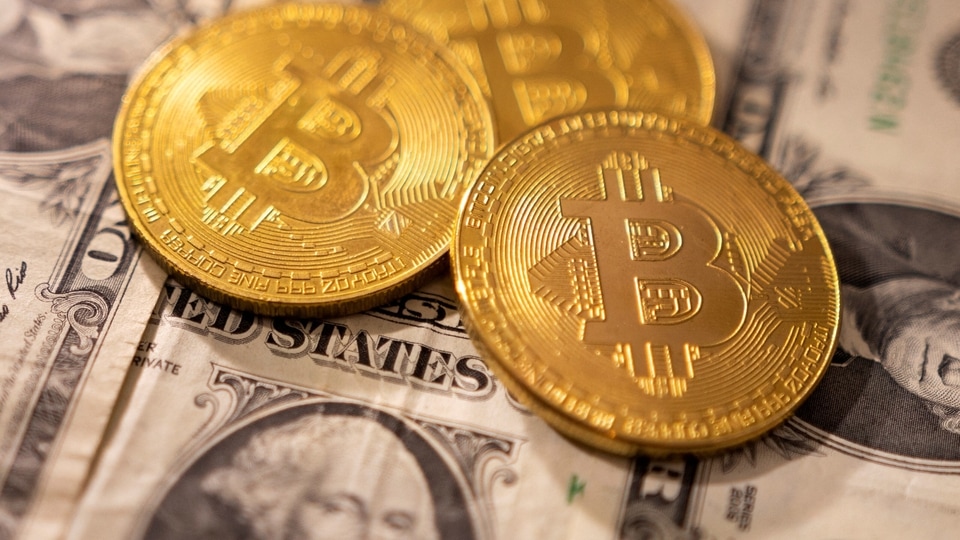What Nassim Nicholas Taleb of ‘Black Swan' fame gets Wrong - and Right - about Bitcoin
Bitcoin has fallen 50% since November. This is not unusual for the cryptocurrency; it did the same thing from April to July 2021, and quickly rebounded.


From a pure statistical viewpoint, Bitcoin looks like a very high volatility asset without strong medium- or long-term tendencies to trend or revert. It's not a perfect random walk with future direction independent of past price movements, but it's closer to one than most major assets such as stocks, bonds and commodities. This background is important for evaluating a Tweet by Nassim Nicholas Taleb of ‘Black Swan' fame that generated considerable attention: 'For a contagion driven asset with no economic anchor such as #BTC, a falling price does not make it ‘cheaper' and more attractive. A falling price makes it less desirable &, paradoxically, more expense. Why? Because price is its ONLY information.'
This is not true empirically over Bitcoin's short history. In the past, buying Bitcoin when the price was falling has been equally attractive as buying it when its price was rising. But Taleb made an economic claim, not a statistical one. (I've known Taleb for 36 years and have learned much from him. I always find his comments provocative and usually right. I also own Bitcoin and other crypto assets.)
The first thing to note is that there are lots of other “contagion-driven” assets without “economic anchor.” Art, diamonds, gold and many other things have value only because other people value them, not from any direct economic use.
A particularly important contagion-driven asset lacking an economic anchor is the US dollar. Unlike Bitcoin, it has a strong tendency to trend. If the dollar's value is falling due to inflation, it's likely to continue to fall. No one buys the greenback because it's cheap during inflation or sells because it's expensive during depressions — it's the opposite that happens.
Crypto may not have an economic anchor, but art, diamonds, gold and many other things have value only because other people value them, not from any direct economic use.
The dollar has something that Bitcoin doesn't, which is a government and banking system that sometimes acts to stabilize its value. But it's not an anchor, and the Federal Reserve does not try to return the dollar to pre-inflation values. Rather, it's an engine to keep the ship from drifting too fast. If the dollar is losing value rapidly, the Fed would generate forces that may slow the decline, but not reverse it to bring it back to its previous value.
The world's primary reserve currency gave up any economic anchor in 1971 when President Richard Nixon ended the gold standard -- and that was only a loose anchor to gold, which itself lacks an anchor -- and after a decade of mismanagement established a rough faith that its value would not erode too quickly to make it useful for transactions and savings. That faith was shaken during the 2007 – 2009 financial crisis, not due to fears of inflation, but fears of financial institution collapse. Another major world currency, the euro, went through an even deeper crisis from 2009 through 2014, driven mainly by fear of government and central bank defaults.
This is the world in which Bitcoin was born and gained worldwide trust among technophiles, financially repressed people and people skeptical of government and banks. Bitcoin was a lifeboat for people thrown overboard by the government ship, and for everyone in case the traditional financial system's lack of an anchor caused it to founder. Lifeboats don't need anchors.
However, as Bitcoin's value and acceptance grew it acquired an initial economic anchor in the form of faith that some official currencies and financial institutions would be unattractive for enough people that there would be significant demand for Bitcoin transactions and savings. Later, as cryptocurrency projects delivered real services to willing customers, the value anchor for Bitcoin became faith that it would be a major store of value for the crypto-economy and a main exchange currency with the traditional financial system.
Over the last two years, progress in the crypto-economy has been about as expected, without major breakthroughs or setbacks. It is the traditional financial system that has been upended by the pandemic, lockdowns, supply chain issues, aggressive fiscal and loose monetary policies, political dysfunction and threats of war. Therefore, it seems to me that volatility in the number of dollars people will pay for Bitcoin has more to do with uncertainty about the long-term value of dollars than reappraisals of the prospects for the crypto-economic sector. When Bitcoin's price falls in terms of dollars it doesn't say much about whether Bitcoin is cheap or expensive, but it does suggest people are placing more faith in dollars, perhaps due to anticipated Fed monetary policy tightening, reduced expectations for government spending, and declining pandemic and war fears.
Mainstream financial markets give their opinions on such things via interest rates, equity volatility, exchange rates and inflation breakeven rates. These are good indicators of median views. Bitcoin and crypto markets help us understand the opinions of, say, a 5% tail of contrarians, skeptics, technology experts and the financially repressed. Wise investors will listen to both voices.
Technically, diamonds and gold have some use value, but it's a tiny fraction of their market prices, so they are “anchored” to a place no holder wants them to go
Aaron Brown is a former managing director and head of financial market research at AQR Capital Management. He is the author of 'The Poker Face of Wall Street.' He may have a stake in the areas he writes about.
Catch all the Latest Tech News, Mobile News, Laptop News, Gaming news, Wearables News , How To News, also keep up with us on Whatsapp channel,Twitter, Facebook, Google News, and Instagram. For our latest videos, subscribe to our YouTube channel.


























